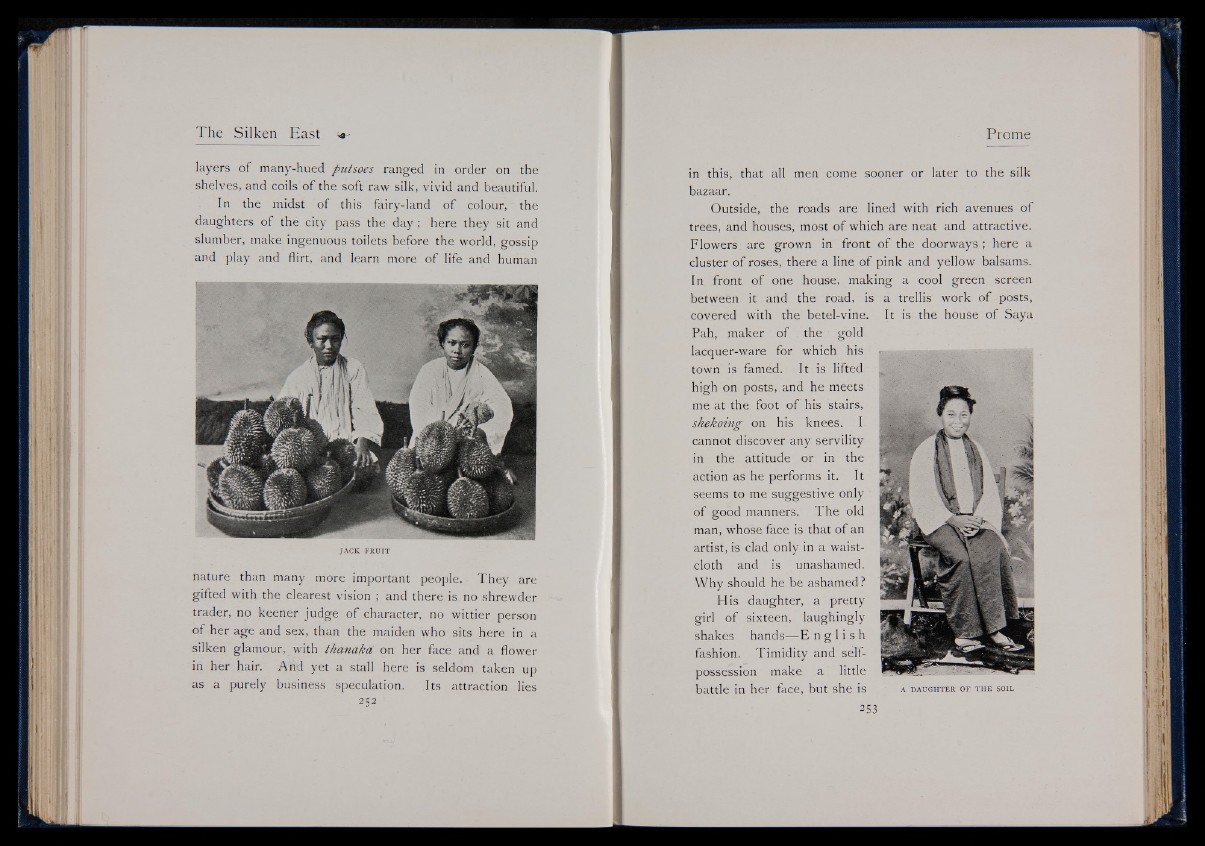
layers of many-hued putsoes ranged in order on the
shelves, and coils of the soft raw silk, vivid and beautiful.
In the midst of this fairy-land of colour, - the
daughters of the city pass the day ; here they sit and
slumber, make ingenuous toilets before the world, gossip
and play and flirt, and learn more of life and human
JA C K FR U IT
nature than many more important people. They are
gifted with the clearest vision ; and there is no shrewder
trader, no keener judge of character, no wittier person
of her age and sex, than the maiden who sits here in a
silken glamour, with tkanakd on her face and a flower
in her hair. And yet a stall here is seldom taken up
as a purely business speculation. Its attraction lies
252
in this, that all men come sooner or later to the silk
bazaar.
Outside, the roads are lined with rich avenues of
trees, and houses, most of which are neat and attractive.
Flowers are grown in front of the doorways; here a
cluster of roses, there a line of pink and yellow balsams.
In front of one house, making a cool green screen
between it and the road, is a trellis work of posts,
covered with the betel-vine. It is the house of Saya
Pah, maker of. . the gold
lacquer-ware for which his
town is famed. It is lifted
high on posts, and he meets
me at the foot of his stairs,
shekoing on his knees. I
cannot discover any servility
in the attitude or in the
action as he performs it. It
seems to me suggestive only
of good manners. The old
man, whose face is that of an
artist, is clad only in a waist-
cloth and is unashamed.
Why should he be ashamed?
His daughter, a pretty
girl of sixteen, laughingly
shakes hands— E n g 1 i s h
fashion. Timidity and self-
possession make a little
battle in her face, but she is a d a u g h t e r o f t h e s o i l